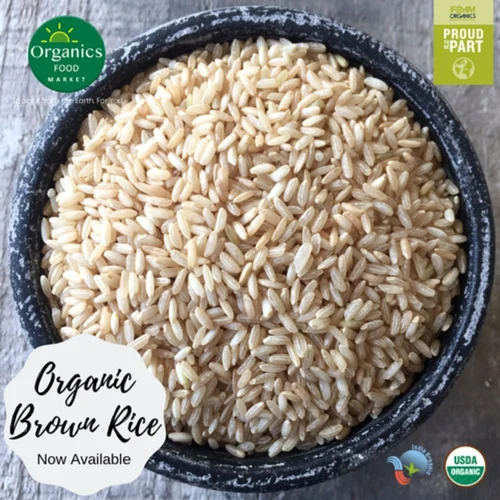Organic Sona Masoori White Rice
₹50.0
| Packaging Size Available | 25 Kg |
| Brands | Organics Food Market |
| Packaging Type Available | PP Bag |
| Variety Available | Medium Grain Rice |
| Variety | Medium-Grain Rice |
| Polished | Partial Polished |
| Region of Origin | West Bengal, Assam |
| Color | White |
| Packaging Size | 25kg |
| Crop Year | 2019 |
| Certification | Organic NPOP and NOP certified |
| Cultivation | Organic |
| Payment Terms | 100% Advance |
| Broken | > 5% |
| Country of Origin | Made in India |
- Description
- Additional information
- Reviews (0)
- Q & A
- Sustainability Remark
- More Offers
- Store Policies
- Inquiries
Our organic Sona Masoori Rice is grown in Assam and is produced under NPOP and NOP Certified standards
Additional Information:
- Production Capacity: 300 MT
- Delivery Time: 5-7days
- Packaging Details: 25kgs PP bags
| Weight | 1 kg |
|---|---|
| brands | Organics Food Market |
You must be logged in to post a review.
Q & A
Organic products, including organic grocery items and organic rice, are generally considered to be more sustainable than conventionally produced products. This is because organic farming methods typically prioritize environmental stewardship, social responsibility, and economic viability.
Organic farming practices are designed to minimize environmental impacts, such as reducing soil erosion, conserving water, and decreasing pollution. Organic farmers also avoid using synthetic pesticides and fertilizers, which can be harmful to both the environment and human health.
In addition, organic farming often relies on crop rotations, composting, and other practices that help build soil health and biodiversity. These practices can help promote long-term sustainability and resilience in agricultural systems.
Furthermore, organic farming often prioritizes social responsibility, such as ensuring fair labor practices for workers and supporting local communities. And while organic products can sometimes be more expensive than conventionally produced ones, the economic viability of organic farming can be improved through various policies and programs that support organic agriculture and provide incentives for farmers to adopt sustainable practices.
Overall, the sustainability of organic products is influenced by a variety of factors, including farming practices, supply chains, and consumer demand. However, organic products are generally seen as a more sustainable choice than conventionally produced products, and can play an important role in building more sustainable food systems.
General Inquiries
There are no inquiries yet.




Reviews
There are no reviews yet.